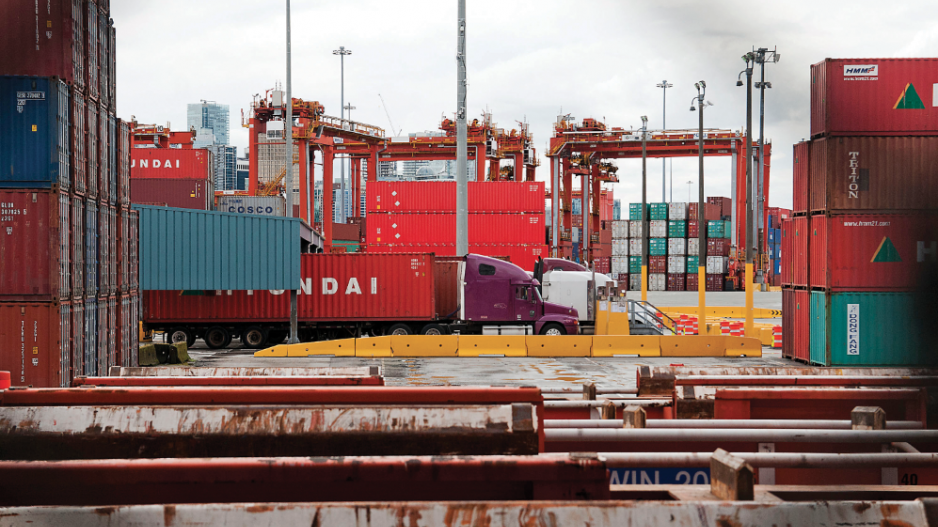The BC Trucking Association (BCTA) says changes to the Vancouver Fraser Port Authority’s Truck Licensing System designed to benefit smaller trucking companies are a step in the right direction, but the system needs more transparency.
Effective January 2018, smaller trucking companies, which make up about a third of the container trucking traffic that has approved access to the port, will pay $25,000 annually instead of the previous $35,000.
Louise Yako, the BCTA’s president and chief executive officer, said the industry was notified two weeks ago about the changes, and it’s been a part of a much longer consultation process and an independent review on the subject that’s been going on for more than a year.
While she noted that the changes are beneficial for small carriers, Yako said her association is largely in the dark when it comes to the truck licensing system’s overall cost.
“It took into account some of our members’ comments. But our main concern or issue remains, and that is a clear and transparent accounting of the financial costs that are being assessed to the system.”
Yako added that the categories the port provides for truckers are too broad and don’t provide enough detail. She said the port currently charges for access to private roads connecting to various port facilities and that is neither financially feasible for smaller trucking companies nor needed.
Peter Xotta, the vice-president of planning and operations for the Vancouver Fraser Port Authority, said the recent changes to licensing fees were made in response to industry comments.
“We heard concerns from trucking companies and the Government of Canada, including Lower Mainland Members of Parliament,” he noted in the December press release announcing the changes. “We took that feedback seriously and believe we have now addressed the concerns raised.”
The port noted in its release that several changes have been made to the truck licensing system to improve efficiency and cut costs for truck drivers. It claimed that, with terminal wait times for truckers in the port half the average of other West Coast ports, the Port of Vancouver now has the most efficient container truck operations of any West Coast North American port.
The port also said that only 9% of drivers are forced to wait beyond set limits, and since 2014 more than $4 million in wait-time penalties have been paid to these drivers by port terminals.
The port’s truck licensing system also highlights the struggle between economic prosperity and combating climate change when it comes to international trade.
New regulations that came into effect on January 1, 2016, require all trucks with port access to be 2007 or newer. Each month an estimated 1,700 short-haul container trucks make 87,000 trips to and from the port’s four container terminals.
Vancouver is Canada’s largest port and trades approximately $200 billion in goods with more than 170 countries.




